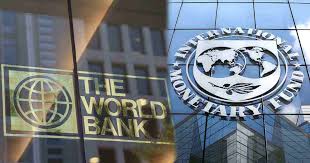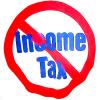
Breaking News
 100 Days: What Trump Told TIME
100 Days: What Trump Told TIME
 Trump Revives the Alien and Sedition Acts
Trump Revives the Alien and Sedition Acts
 The Full Yaron Brook: Selfishness, Immigration, War, Love, Liberty and of Course Ayn Rand
The Full Yaron Brook: Selfishness, Immigration, War, Love, Liberty and of Course Ayn Rand
Top Tech News
 Dark Matter: An 86-lb, 800-hp EV motor by Koenigsegg
Dark Matter: An 86-lb, 800-hp EV motor by Koenigsegg
 Spacetop puts a massive multi-window workspace in front of your eyes
Spacetop puts a massive multi-window workspace in front of your eyes
 Cramming More Components Onto Integrated Circuits
Cramming More Components Onto Integrated Circuits
 'Cyborg 1.0': World's First Robocop Debuts With Facial Recognition And 360° Camera Visio
'Cyborg 1.0': World's First Robocop Debuts With Facial Recognition And 360° Camera Visio
 The Immense Complexity of a Brain is Mapped in 3D for the First Time:
The Immense Complexity of a Brain is Mapped in 3D for the First Time:
 SpaceX, Palantir and Anduril Partnership Competing for the US Golden Dome Missile Defense Contracts
SpaceX, Palantir and Anduril Partnership Competing for the US Golden Dome Missile Defense Contracts
 US government announces it has achieved ability to 'manipulate space and time' with new tech
US government announces it has achieved ability to 'manipulate space and time' with new tech
 Scientists reach pivotal breakthrough in quest for limitless energy:
Scientists reach pivotal breakthrough in quest for limitless energy:
America Should Bolt From the World Bank and IMF

But Bessent announced that the Trump administration will be "doubling down" on supporting the largest foreign aid gushers on earth. "Far from stepping back, 'America First' seeks to expand U.S. leadership in international institutions like the I.M.F. and World Bank," Bessent declared.
Bessent complained the IMF "devotes disproportionate time and resources to work on climate change, gender, and social issues." What should the U.S. government expect when Congress and endless presidents give the IMF billions of U.S. tax dollars to play with? The U.S. government is on the hook for $52 billion to the World Bank and has a financial commitment of $183 billion to the IMF.
The International Monetary Fund was created in 1944 to shore up currencies and help nations with temporary balance-of-payment problems. In the decades since the IMF's founding, global capital markets and fluctuating currency exchange rates have made the IMF a relic. But too many people have gotten rich from IMF largesse to permit the curtain to be closed on this institution.
World Bank President Ajay Banga "has sought to emphasize the bank's focus on job creation…and to prioritize private sector involvement in projects around the world," The New York Times reported. But the World Bank's notion of private sector has often been either a fraud or a political smokescreen. In the late 1980s, the World Bank touted its loans to communist nations as private sector-oriented loans—one bait-and-switch too many, as I detailed in a 1988 Wall Street Journal article. And permitting the Bank to exonerate its handouts by counting illusory jobs created is a recipe for make-work scams.
American politicians have pissed and moaned about these agencies forever. In 2002, then-Treasury Secretary Paul O'Neill denounced the IMF and the World Bank for driving many poor nations "into a ditch" with excessive lending which governments subsequently wasted. IMF and World Bank handouts allow politicians to entrench themselves and scorn their own people. Those loans to bad governments are "odious debts" for the people in those nations. The downtrodden masses will be taxed to repay loans that their rulers pocketed, squandered, or used to tighten their fetters or maybe their nooses.
The IMF and World Bank have helped turn many foreign nations into kleptocracies—governments of thieves. A 2002 American Economic Review analysis concluded that "increases in [foreign] aid are associated with contemporaneous increases in corruption," and that "corruption is positively correlated with aid received from the United States."
Most importantly, neither the IMF or the World Bank have any qualms about bankrolling tyranny. A 2015 report of the United Nations' Special Rapporteur on extreme poverty and human rights, Philip Alston, concluded that the World Bank "now stands almost alone, along with the International Monetary Fund, in insisting that human rights are matters of politics which it must, as a matter of legal principle, avoid, rather than being an integral part of the international legal order." The Bank justifies this position by insisting that it cannot involve "itself in the partisan politics or ideological disputes that affect its member countries" by improper methods such as "favoring political factions, parties or candidates in elections," or "endorsing or mandating a particular form of government, political bloc or political ideology."

 No Income Tax?
No Income Tax?
 Kawasaki CORLEO Walks Like a Robot, Rides Like a Bike!
Kawasaki CORLEO Walks Like a Robot, Rides Like a Bike! Barrel-rotor flying car prototype begins flight testing
Barrel-rotor flying car prototype begins flight testing

